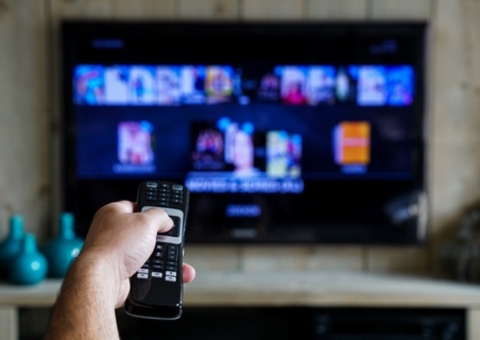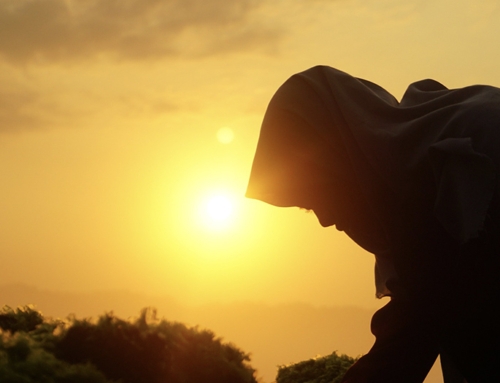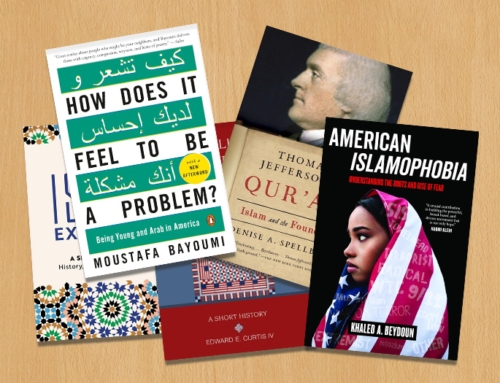Introduction: Perceptions Shaped Through Media
The role of television in today’s world is vital in shaping the perceptions of millions of individuals regarding their understanding of different cultures, religions, and communities. Unfortunately, Islam, one of the world’s largest religions, is often underrepresented or misrepresented in mainstream television shows and movies. These misrepresentations are detrimental as they perpetuate stereotypes about Muslims, influence hatred, and contribute to Islamophobia. To work against these harmful stereotypes in the media, it is important to dismantle them and understand new ways to promote accurate and nuanced portrayals.
According to a report issued by the USC Annenberg Inclusion Initiative, in which researchers investigated 200 top-rated television shows from 2018 and 2019 that aired in several countries and surveyed 8,885 characters with speaking roles, it seemed that the majority of Muslim characters, if represented, were misrepresented1. Despite Muslims being the most racially and ethnically diverse group in the world, the majority of Muslim characters were depicted as Middle Eastern or North African men, and were often linked to violent acts and behaviors. While 30% of the characters were perpetrators of violence, 40% were targets of such attacks. Furthermore, less than a third were portrayed as native English speakers, highlighting Muslims as “foreigners,” according to NPR2. Muslim women were severely underrepresented, and when they were– they were portrayed as “endangered” or “fearful.” Due to a lack of understanding about Muslims and their diverse communities, stereotypes such as Muslims being violent or endangered are perpetuated in the media to bring about a wrongful understanding to individuals about what Islam truly represents.
Understanding and Identifying Misrepresentation
There are many examples in which Muslims are misrepresented on television, and it may be important to identify a few in order to be able to recognize them when they appear. One example is the television series “Homeland,” which depicts Muslim characters as terrorists or having terrorist sympathies. The representation in this show feeds into the narrative that Muslims are a threat to national security. According to the Harvard Political Review, “The primary goal for Carrie Mathison, the female protagonist, is to take down the fictitious terrorist leader Abu Nazir. Nazir who, along with all the other “bad guys” in the show, are Muslims.”3 While the show isn’t completely black and white and also depicts the American government as corrupt, there are many subtle instances of Islamophobia that may perpetuate stereotypes within the show.
Other television shows, including “24” and “24 Legacy,” and films, such as “True Lives,” “American Sniper,” and “Executive Decision,” further associate Islam with terrorism and violence which contributes to Islamophobia. These examples highlight the need for greater diversity and accurate representation of Muslims in movies and TV shows.
Correcting Misconceptions: Islam’s Stance
Looking at the consistent issue of misrepresentation, it is important to understand what Islam really says about violence, terrorism, and even women’s oppression that these shows are depicting– in order to recognize the casual Islamophobia these shows portray. Islam is a religion of peace and mercy, and does not condone terrorism in any form. According to the Quran, the Holy book of Islam, and the Sunnah, the teachings of Prophet Muhammad (peace be upon him), murder is a major sin in Islam. It was even warned that on the Day of Judgement, “The first cases to be adjudicated between people on the Day of Judgment will be those of bloodshed.”4
God also says in the Quran: “God does not forbid you from showing kindness and dealing justly with those who have not fought you about religion and have not driven you out of your homes. God loves just dealers.” (Quran 60:8)
The act of inciting violence or terror in the hearts of defenseless civilians, the bombing of innocent men, women and children, and the destruction of civilians’ buildings and properties, are all detestable acts in light of these Islamic texts as well as others. The violent and terroristic events associated with Muslims therefore have nothing to do with Islam, as a person who commits these actions would be guilty of violating the laws of the faith. Many are susceptible to the stereotypes regarding Islamic terrorism due to the actions of a few extremist individuals who do not represent Islam for what it truly is.
What about TV shows that depict Muslim women to be oppressed? Shows such as Netflix’s Elite, which depicts a Muslim girl taking off her hijab for a guy and due to her subjection to the overbearing control of her father, push stereotypes that Muslim women are oppressed or even under a man’s control. The truth is, while the Quran and Islam emphasize the well-being of women, certain cultural traditions often discriminate against them.5
The Quran admonishes men who oppress or ill-treat women6: “O you who believe! You are forbidden to inherit women against their will. Nor should you treat them with harshness, that you may take away part of the dowry you have given them – except when they have become guilty of open lewdness. On the contrary, live with them on a footing of kindness and equity. If you take a dislike to them, it may be that you dislike something and Allah will bring about through it a great deal of good.” (Quran 4:19)
Islam was one of the first religions to ban female infanticide, promote marital equality, grant women financial rights, allow for divorce, and promote shared parenting.5 However, the misalignment often arises from cultural practices, where husbands assume positions of authority, divorce is made challenging, and certain customs distort the original intent of practices such as polygamy and veiling, rendering them instruments of oppression. TV shows and films therefore portray negative cultural traditions instead of the true image of Islam.
Responsibility of Media: Shaping an Informed and Inclusive Future
Therefore, accurate portrayals of Islam on television are crucial for fostering understanding and promoting tolerance. TV shows and movies have the power to break down barriers and encourage dialogue by portraying the true essence of Islam, rather than continuing to showcase it as a religion of violence and oppression. More accurate portrayals may show Muslims as devoted individuals who value peace, social justice, and compassion– all of which are essential to the Islamic faith. Viewers will therefore develop a more nuanced understanding of Islam, if Muslims are portrayed in a positive light, which may help individuals overcome any biases or misconceptions.
TV shows and movies carry the responsibility of countering stereotypes and cultivating authentic depictions of Islam. Despite its portrayal to the contrary in numerous productions, Islam is fundamentally a religion of peace. As viewers, it is crucial for us to critically analyze and support shows that strive to provide accurate and nuanced representations of Islam, and to strengthen our ability to identify instances of casual Islamophobia within our beloved TV shows or movies. By doing so, we contribute to a more informed and inclusive media landscape, and move towards a stronger understanding of the beautiful religion.
If you have any more questions about Islam, contact us at 877-WHY-ISLAM.
[1] https://assets.uscannenberg.org/docs/aii-study-muslim-erased-or-extremists-20220901.pdf
[2] https://www.npr.org/2022/09/07/1121511404/muslims-tv-series-study
[3] https://harvardpolitics.com/homeland-islamophobic-propaganda-or-progressive-masterpiece/
[4] https://www.islamreligion.com/articles/238/what-does-islam-say-about-terrorism/#_ftn32540
Got Questions?
We have Answers. Get in touch now.








